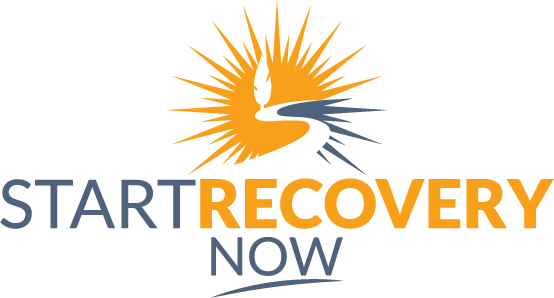Alcohol and Drug Detoxification Process
Understanding the Addiction Detoxification Process If you’re searching for information […]
Understanding the Addiction Detoxification Process
If you’re searching for information on the addiction detoxification process, you likely need clarity on what it involves and how it can pave the way for addiction recovery. The detox process involves carefully removing toxins from your system in a medically supervised setting to ensure your safety and alleviate withdrawal symptoms. This guide will walk you through the critical stages of detox, from the initial assessment to post-detox care, arming you with the knowledge you need for a successful detox journey.
Key Takeaways
- Detoxification is the primary phase of addiction treatment aimed at clearing the body of substances, managing withdrawal symptoms, ensuring patient safety, and preparing the individual for further recovery efforts through careful medical supervision.
- Several forms of detox programs exist, including inpatient and outpatient treatments, which are tailored to the severity of addiction and individual circumstances, with medically supervised detox providing the safest environment for managing acute withdrawal symptoms.
- Post-detox care is crucial to recovery, with continued therapeutic interventions, support groups, and counseling being essential to avoid relapse and maintain sobriety, highlighting the importance of an ongoing, integrated approach to addiction treatment.
Understanding the Addiction Detoxification Process

Detoxification serves as the initial stage in alcohol addiction treatment, focusing on treating alcohol or drug addiction. This process entails purging the body of all alcohol and drug residuals, establishing physical stability, and controlling withdrawal symptoms. A multidisciplinary team of medical professionals, including physicians, psychiatrists, nurses, therapists, and counselors, oversees the alcohol detox process.
This procedure isn’t solely about expelling substances from the system; it also equips the individual for the subsequent recovery phase. Detoxification strives to alleviate withdrawal symptoms, ensuring a smooth, safe transition into the treatment program. The primary objective of detoxification is safeguarding the patient from harm, usually through a gradual reduction strategy in which the individual is gradually taken off detox medication to mitigate withdrawal symptoms.
Comprehending the detoxification process is integral for individuals contemplating or embarking on their path to sobriety. Being aware of what to expect can help prepare you mentally and emotionally for the challenges ahead and make the journey smoother and more manageable.
The Purpose of Detoxification
Detoxification is designed to:
- Clear the body of harmful substances
- Serve as the first step in substance abuse treatment
- Go beyond just removing drugs or alcohol from the body
- Reduce the physical consequences related to substance use
- Minimize medical complications
- Ensure safety during withdrawal
- Facilitate the transition to long-term treatment
Detoxification centers on the individual’s physical health, guaranteeing they are stable and prepared to commence addiction therapy. As it readies the body and mind for the pursuit of long-term sobriety, this stage is crucial in the recovery process.
Importance of Detox in Addiction Recovery
Far from being just a prerequisite, detoxification is a critical initial step in addiction recovery. It lays the foundation for long-term sobriety by preparing the body for subsequent addiction treatment and facilitating a smoother transition into therapeutic intervention.
For individuals with alcohol use disorder, the cessation of alcohol can lead to severe withdrawal symptoms. It underscores the importance of detox as a medically supervised process for safely managing these symptoms. Acknowledging the importance of a well-orchestrated detox process is essential for anyone venturing into a recovery journey.
General Steps Involved in Detox
The drug detox process typically encompasses several stages. It starts with an evaluation, followed by stabilization, and finally, a transition to ongoing treatment options. The intake evaluation assesses the individual’s current state and substance use history, providing a comprehensive overview to tailor the detox plan.
Following the evaluation, the stabilization phase begins. This stage can last from hours to weeks and includes medical oversight to ensure safety as drugs leave the body. It may also involve medication-assisted treatment to manage withdrawal symptoms.
After initial stabilization, detox continues with an extended treatment plan to manage early withdrawal and facilitate the transition to comprehensive addiction treatment.
Types of Addiction Detox Programs

When it comes to addiction detox programs, one size doesn’t fit all. Professional detoxification programs provide inpatient treatment, where individuals reside at the facility, or outpatient treatment, where individuals live at home and receive treatment during the day. Each type of program has its own benefits and challenges, and the right program for an individual depends on a range of factors, including the severity of addiction, the type of substance used, the individual’s health status, and their support network.
Medically supervised detox is a safe and effective option for most individuals. It includes essential services like:
- Inpatient hospitalization
- Residential treatment
- Partial hospitalization programs
- Medication-assisted treatment
On the other hand, outpatient detox programs offer flexibility and personalization, making them a suitable option for individuals with mild or moderate alcohol withdrawal symptoms and a supportive home environment.
While home detox kits are commercially available, they can be potentially unsafe and ineffective without professional supervision. Irrespective of the selected detox program, it’s vital to ascertain that it caters to the individual’s medical and mental health needs and offers the requisite support for a successful detox journey.
Medically Supervised Detox
Medically supervised medical detox ensures safety during withdrawals and provides professional support for individuals. It offers an alternative to home detox, with professional interventions managing acute intoxication and withdrawal symptoms. The first step in medically assisted detox includes a thorough medical assessment to develop a viable and personalized detox plan.
Inpatient detox programs facilitate regular health checks, making them particularly effective for those with serious addictions or concurrent medical or mental health issues. The goal is to make the detox process as safe and comfortable as possible for the individual, reducing the risk of severe withdrawal symptoms and complications.
Outpatient Detox
Outpatient detox programs offer flexibility and personalization in scheduling, allowing individuals to receive medical care without disrupting their work, school, or family life. Different levels of outpatient care, such as partial hospitalization and standard programs, provide options ranging from frequent hospital visits to less structured environments, sometimes utilizing telehealth services.
Outpatient detox can be more cost-effective than inpatient programs as they typically do not require overnight hospital stays, lowering the overall treatment expense. They ensure high-quality medical care and can be a viable option for individuals with less severe addiction issues or as a step-down from more intensive treatments, contingent upon the patient’s health status and a well-supported home environment.
Home Detox
Home detoxification can often lead to:
- Exacerbated withdrawal symptoms
- Compromised attempts at achieving sobriety due to lack of professional support
- Severe risks including nausea, vomiting, seizures
- Impact on mental health
It is important to seek professional support when undergoing a drug detox from certain substances.
It’s essential to conduct a pre-detox assessment with a healthcare provider to determine if home detox is safe and appropriate, especially for substances that lead to severe withdrawal symptoms. A structured support network, which can include understanding friends or family, is critical to the success of a home detox. Utilizing telehealth services can provide additional supervision and assistance during the course of a home detox program.
Managing Withdrawal Symptoms During Detox

Profile of a woman suffering head ache lying on the bed at home
One of the most challenging aspects of detox is managing withdrawal symptoms. These symptoms can vary significantly depending on the substance and individual factors, including the duration and severity of substance use. Withdrawal symptoms can start as early as two hours after the last drink or use of a drug and can peak with severe symptoms like seizures and hallucinations at 48-72 hours.
Delirium tremens, a severe form of alcohol withdrawal, can be life-threatening, necessitating urgent medical care. It’s important to realize that withdrawal symptoms are not merely physical but can also influence abuse and mental health, resulting in anxiety, depression, and other psychological symptoms.
Managing withdrawal symptoms effectively is key to the success of the detox process. It involves:
- Medications to reduce symptoms
- Non-pharmacological approaches to manage discomfort
- Professional guidance to ensure safety during this challenging phase of recovery.
Common Withdrawal Symptoms
Withdrawal symptoms can range from physical issues like nausea and increased heart rate to psychological issues such as anxiety and depression. For example, alcohol withdrawal symptoms can range from mild to severe, including nausea, increased heart rate, seizures, delirium, and diarrhea.
For opioids, withdrawal symptoms can begin within 6-12 hours after the last use and peak within the first week, often described as extremely uncomfortable, especially for heroin users. Experiencing opioid withdrawal, benzodiazepine withdrawals typically start within 24 hours of the last dose, peaking around the third day and could extend for months or even years. It is essential to be aware of opioid withdrawal symptoms to seek timely help and support.
Understanding these symptoms can help individuals and their caregivers prepare for the detox process and manage potential challenges effectively.
Medications Used in Detox
Medications play a crucial role in the detox process, helping to manage withdrawal symptoms and keep patients comfortable while drugs leave the body. A variety of medications are used to manage withdrawal symptoms and cravings from alcohol, opioids, and benzodiazepines, including:
- Benzodiazepines
- Anticonvulsants
- Buprenorphine
- Naltrexone
- Phenobarbital
Certain medications like Phenobarbital come with risks, including addiction potential and the possibility of fatal overdose, requiring close medical supervision. Emerging treatments like NAD therapy assist in reducing withdrawal effects and drug cravings by replenishing NAD, a key compound, in the body. The judicious use of medications, under the supervision of a healthcare professional, can significantly improve the comfort and safety of the detox process.
Non-Pharmacological Approaches
Although medications are instrumental in controlling withdrawal symptoms, non-pharmacological strategies also hold significant importance in the detox process. Compassionate care and addressing immediate mental health needs are crucial components of successful detoxification.
Complementary and alternative medicine (CAM) approaches like diet, acupuncture, meditation, and holistic therapies like yoga and hypnotherapy are gaining recognition for their role in supplementing traditional treatments for substance use disorders. Addressing malnutrition and providing nutritional counseling are important aspects of the detoxification process, as substance abuse often leads to nutrient deficiencies which can complicate or lengthen detoxification.
Outpatient treatment services, including mental health services and mental health services administration, along with peer support interventions can serve as community resources that offer a comprehensive approach to recovery and support healthy behavior changes beyond substance abuse and mental abstinence.
Factors Affecting the Detox Process
Numerous factors, such as the type of drug, its usage duration, and individual health conditions, can influence the detox process. The type of substance abused significantly influences the detoxification process and the spectrum of withdrawal symptoms experienced. The duration of substance use also plays a crucial role in determining the duration and intensity of withdrawal symptoms, thereby affecting the detox process.
An individual’s health conditions hold significant bearing on the duration and course of the detox process. Variables like:
- age
- weight
- gender
- physical and psychological condition
- genetics and family history
significantly influence the detox process and withdrawal symptoms. Understanding these factors can help individuals and their caregivers tailor the detox plan to the individual’s needs, ensuring a safer and more effective detox process.
Substance Type
The type of substance abused, including drug abuse, significantly influences the detoxification process and the spectrum of withdrawal symptoms experienced by individuals with substance use disorder. For instance, those physically dependent on alcohol often require medically supervised detox, as quitting alcohol abruptly can lead to dangerous health complications without medical assistance.
The type of substance used not only determines the severity and duration of withdrawal symptoms but also the treatment approach required for successful detoxification.
Duration of Use
The length of substance use also has a profound impact on the detox process. The longer an individual has been using a substance, the more severe the withdrawal symptoms are likely to be during detoxification.
The detox process normally spans a period of 7 to 10 days, though the timeframe can be influenced by the amount of substance used and the intensity of the withdrawal symptoms experienced.
Individual Health Conditions
Individual health conditions, both physical and psychological, can greatly influence the detox process. Detoxification can be complicated by specific health issues including:
- gastrointestinal disorders
- liver disorders
- cardiovascular diseases
- infectious diseases such as hepatitis and HIV/AIDS
Individuals with pre-existing medical or psychological conditions often require tailored detox protocols and sometimes concurrent treatment in specialized settings, such as intensive care, following a treatment improvement protocol.
Proper medical assessment and monitoring are crucial as withdrawal symptoms can mimic other medical or psychiatric conditions, which could potentially result in misdiagnosis. This highlights the importance of recognizing the intersection of substance abuse and overall health, and the need for a comprehensive approach to detox that addresses both these aspects.
Post-Detox Care and Ongoing Treatment

Detoxification merely represents the first stride on the recovery path. Post-detox care is essential in avoiding relapse and encouraging enduring recovery. Without continued post-detox care, individuals are more susceptible to relapse, overdose, and other negative consequences. Comprehensive post-detox recovery support services include sober living homes, alumni programs, support groups, case management, and ongoing therapy.
The continuum of care model for addiction recovery is designed to adjust treatment services to match individuals’ changing needs throughout their recovery journey. Patients in the continuum of care typically progress to progressively less intensive levels of care as they advance in their recovery. Statistical evidence demonstrates that ongoing care post-treatment increases the chances of sustaining abstinence by up to 50% compared to those with no continued care.
Behavioral therapies and support groups are vital components of professional detox services which offer continued support following the detox process. These services provide a supportive environment for individuals in recovery, helping them build healthy coping mechanisms, maintain their sobriety, and prevent relapse.
Rehabilitation Programs
Rehabilitation programs are essential after detox as they lay the groundwork for a life free from drugs and alcohol. Inpatient hospitalization and residential programs offer the most comprehensive care with around-the-clock professional supervision, tailored for those with severe addiction issues.
Outpatient rehabilitation options include:
- Intensive programs requiring several hours of treatment multiple days a week
- Partial hospitalization for consistent yet not full-time care
- Standard outpatient therapy that may include remote services
Effective aftercare programs feature a range of support systems, including 12-step meetings, ongoing counseling, follow-up on progress, and an accountability support network to help prevent relapse.
Therapy and Counseling
Therapy and counseling form indispensable components of the continuum of care in addiction recovery. They address underlying issues related to addiction and support lasting recovery. Therapy for addiction recovery includes methods like Cognitive Behavioral Therapy, which makes patients aware of their thought patterns, and experiential therapies that help work through trauma.
Behavioral therapies, such as the Community Reinforcement Approach and Contingency Management, focus on skills training, social reward systems, and avoiding high-risk situations for substance use. The integration of novel approaches, like computer-based CBT and motivational interviewing, into the treatment plan can help individuals find their motivation to change.
And most importantly, continued support from loved ones and aftercare programs significantly reduce the risk of relapse.
Support Groups and Peer Networks
Peer support groups are deemed a vital element of the addiction recovery process. They enhance the recovery experience by fostering a supportive environment and sense of community. Benefits of participating in peer support groups include:
- Increased treatment retention
- Improved relationships
- Increased satisfaction
- Reduced relapse rates
- Increased self-esteem and confidence
Twelve-step programs like Alcoholics Anonymous and Narcotics Anonymous are well-established peer support groups with proven effectiveness in promoting abstinence and healthy coping mechanisms. Support groups and peer networks provide a platform for vulnerability and community, reinforcing long-term recovery success and aiding in the maintenance of sobriety and relapse prevention.
Peer support groups serve as crucial engagement strategies post-detox, increasing adherence to treatment among populations with traditionally high rates of recidivism.
Summary
In conclusion, understanding the addiction detoxification process is the first step towards recovery. It can be a challenging journey, but with the right support and resources, individuals can navigate the detox process safely and effectively. Whether it’s choosing the right detox program, managing withdrawal symptoms, or understanding the factors that affect the detox process, knowledge is power. And remember, detox is just the first step. Post-detox care, including rehabilitation programs, therapy, counseling, and support groups, is crucial for preventing relapse and promoting sustained recovery. It’s a journey, but with each step, you’re getting closer to a life free from substance abuse.
Frequently Asked Questions

What are the steps of detoxification?
Detoxification involves three phase pathways in the body.
What is the mechanism of detoxification?
Detoxification occurs through the elimination of toxic foods, vomiting, diarrhea, urine secretion by the kidneys, and chemical alteration of toxins by the liver, making the kidneys and liver crucial organs in the process.
What are the principles of detoxification?
The principles of detoxification focus on interventions for managing acute intoxication and withdrawal, including clearing toxins from the body and minimizing physical harm caused by substance abuse. These principles involve comprehensive assessment, general supportive measures, and pharmacotherapy.
What is the purpose of detoxification in addiction treatment?
The purpose of detoxification in addiction treatment is to clear the body of harmful substances, reduce physical consequences, minimize medical complications, ensure safety during withdrawal, and facilitate the transition to long-term treatment. So, it serves as the first step in substance abuse treatment.
What are the types of addiction detox programs?
The types of addiction detox programs include medically supervised detox, outpatient detox, and home detox. The right program depends on factors such as the severity of addiction, type of substance used, health status, and support network.




